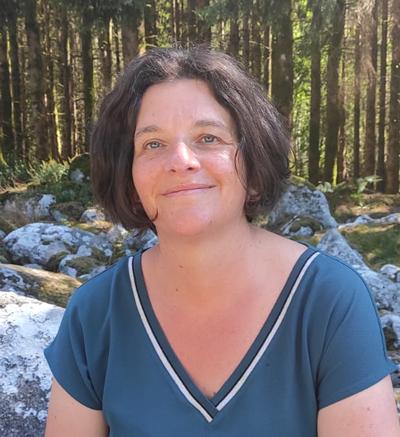Dr Claire Le Foll PhD (Paris), PhD
Director of the Parkes Institute, Associate Professor of East European Jewish History and Culture

Dr Claire Le Foll is an Associate Professor of History at the University of Southampton.
I specialise in the history and culture of Jews in Eastern Europe in the 19th and 20th centuries. I joined the Parkes Institute and History department in September 2009.
I received my BA and MA degrees in History from Paris-Sorbonne (Paris I) and my PhD at the Ecole des Hautes Etudes en Science Sociales (Paris). I was a post-doctoral research at the university of Portsmouth (2006-2007, funded by a Hanadiv Foundation post-doctoral fellowship) and at the Franco-Russian Centre for Humanities and Social Sciences in Moscow (2007-2008) funded by a grant from the French Ministry of Foreign Affairs (bourse Lavoisier).
My interest for East-European Jewish history was born from an initial research on Marc Chagall, his first teacher Yehuda Pen, and the art school that was created in Vitebsk at the turn of the 20th century. My first book about the Vitebsk Art School explores the emergence of a national Jewish art in the context of Late Imperial Russia and of the Russian avant-garde. I continue to be interested in the visual history of Jews in Eastern Europe. I co-organized an international conference in Vitebsk to commemorate the 100th anniversary of ‘The Vitebsk people’s art school and its legacy (1918-1922)’.
My dissertation was an extensive if not ‘total’ exploration of the still under-researched history of Jews in the Belarusian provinces of the Russian empire before the revolution of 1917. My second book La Biélorussie dans l’histoire et l’imaginaire des Juifs de l’Empire russe, 1772-1905 (Honoré Champion, 2017) (Belarus in the history and imaginary of Russian Jews) analyses the specific Jewish experience in Belorussia with regard to political, socio-economic, cultural and religious matters. This work offers an in-depth analysis of the relationships between Jews and Belorussians as well as their mutual representations in literature and art.
I expanded this interest in Belarusian-Jewish relations chronologically by looking at different aspects of their interactions in the 1920s and 1930s. I participated in the project ‘Kinojudaica: The Image of the Jews in the Russian and Soviet cinema' (2008). I translated from Russian into French the Belarusian section of the "Book of the pogroms", a collection of documents on the Russian Civil War pogroms (published in Paris in 2010). I also contributed to an international research project organized by the French Centre d’Études des Mondes Russe, Caucasien, Centre-asiatique et Centre-Européen (EHESS/CNRS) on ‘The Constitution of Human and Social Sciences In Russia: Networks And Circulation Of Models Of Knowledge From The 18th century to the 1920s’ with a research on the Belorussian Institute of Culture and its Jewish section. More recently, I got interested in Soviet children literature in Yiddish and Belarusian languages in the interwar period, looking also at illustrations for children books.
Over the years, I have gained proficiency in Russian, Yiddish and Belorussian, and basic knowledge of Polish, Hebrew and German. I have worked extensively with archives in Eastern Europe, Israel and the US.